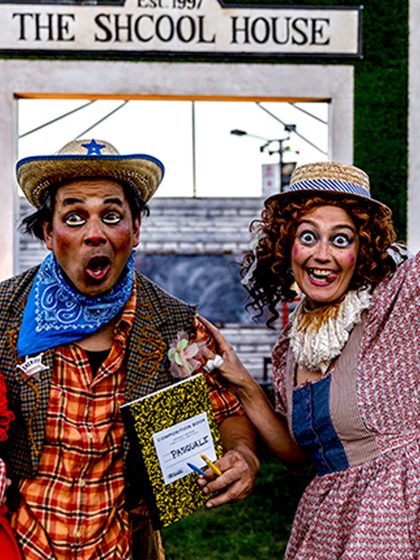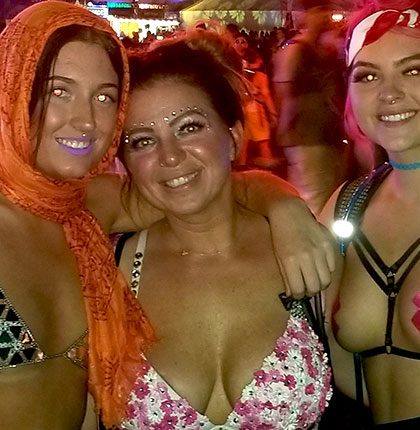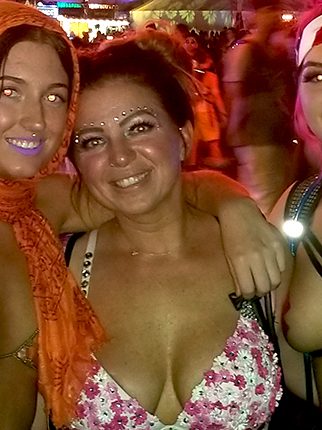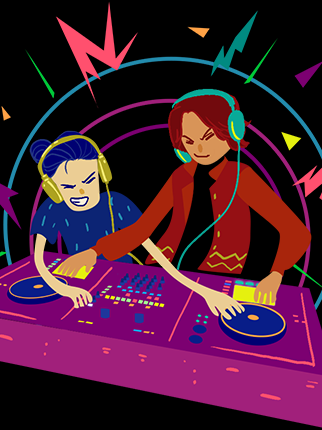For a Child With Autism, Dance Music Provides Solace
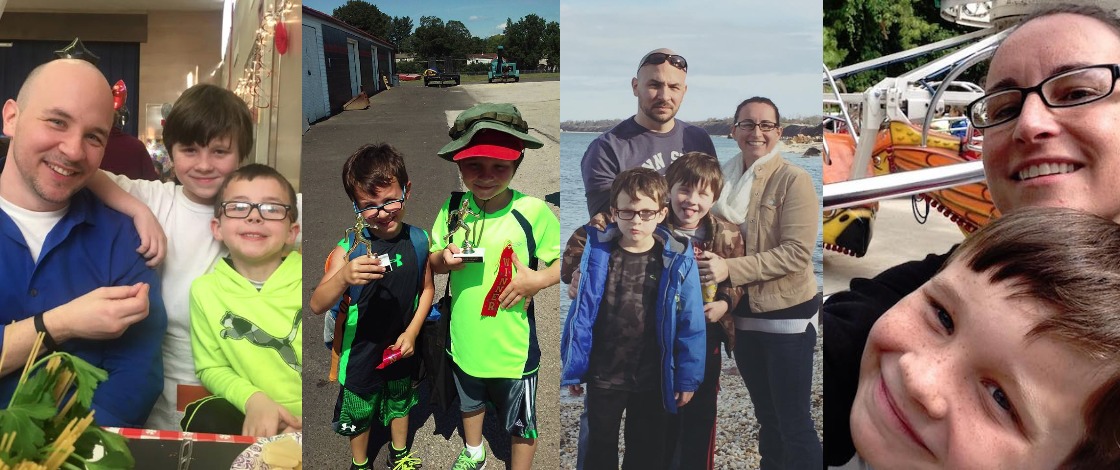
Autism—also abbreviated as ASD, or Autism Spectral Disorder—affects over 3 million individuals in the US today. In fact, approximately 1 in 68 children in this country can be placed on the autism spectrum.
For being so common, the autism spectrum is also vastly large and complex. Every individual with autism is unique in their own ways; some are nonverbal and unable to live independently, while others display above-average intellectual abilities and excel in academics, music and art.
Music has proved incredibly important to individuals on the autism spectrum. Research shows a number of different benefits of music—dance music included—to people that may have trouble communicating, expressing emotions, organizing thoughts and stimuli, and focusing. And though someone’s response to music may vary from case to case, the benefits are undeniable, and are gaining an increasing amount of attention in the fields of psychotherapy.
Now, meet Jessica Palmer. Jessica has a lengthy and fruitful history with Insomniac, having begun raving in 1996 when the company was in its early stages. Over the years, she attended many of Insomniac’s first events, fell in love with dance music, and embraced rave culture as her own.

Ten years later, in 2006, Jessica decided to settle down in order to build her career, get married, and start a family. It was then that Jess and her husband were blessed with their first child, Hunter Palmer.
Hunter arrived five weeks before his due date and quickly grew into an energetic, spunky kid. However, by the time Hunter turned 3, Jessica began noticing certain behavioral traits that stood out to her. He demonstrated what she called “repetitive” behavior—including playing on the same swing for hours, showing OCD-like symptoms with his toys, and having occasional, vigorous meltdowns. Worried that Hunter’s behavior was the result of some form of bad parenting, Jessica took him to see a doctor soon after his third birthday. It was then that Hunter was diagnosed with high-functioning autism.

Hunter is fully capable of keeping up with his peers in school, but he falls short in certain social situations due to his disability. Sadly, this makes him an easy target for bullying and teasing that often results in angry, erratic behavioral episodes, simply because he doesn’t know how else to cope. These episodes are what the autism community calls a “meltdown.” They can take place in many forms but feel similar in terms of uncontrollable, emotional devastation. Many people on the spectrum have been able to describe exactly what a meltdown feels like, which has led to improved forms of treatment and prevention, as well as better public understanding of such incidents.
In simple terms, a meltdown feels as though your world is ending. Irrepressible, angry feelings consume your mind, and any control over your emotional and physical response disappears. To a bystander, a meltdown often seems sporadic, or triggered by little or nothing at all. To the individual experiencing it, however, a meltdown is likely the result of a buildup of various minor triggers throughout the day. It is then that a teasing comment, jostle in line, or other action can act as the final straw that tips him or her into overload.

There are a variety of suggested actions to take when with someone experiencing a meltdown. Examples include taking the individual into a safe space void of sensory distractions, allowing him or her to hold onto something for comfort, and inducing pressure using weighted blankets or massages. There was another remedy, however, that Jessica found both effective and fun for her and Hunter.
A longtime lover of dance music due to her raving past, Jessica often played dance tracks in the car with Hunter. She found that the repetitive beats, the catchy melodies, and the simplicity of the songs struck a chord with Hunter, who would respond with head bobbing, singing along, or dancing in his seat. “Reload”—the 2012 classic from Sebastian Ingrosso and Tommy Trash—was by far Hunter’s favorite, and Jessica spent hours every week driving through their neighborhood with Hunter listening to the track on repeat. “Reload” soon became one of Hunter’s best meltdown treatments—the progression of the four-on-the-floor beat relaxed him, brought him into a comfort zone, and ultimately alleviated the uncontrollable behavior that a meltdown induced.
The music didn’t stop there. Jessica and Hunter held frequent dance parties in their home, and every time she began playing electronic music, Hunter was able to relax and feel comfortable, shaking his head and body to the beats. And while Hunter’s favorite genre may now be dance music, many forms of music have produced similar results in children seeking a sensory experience to connect with. Jessica and Hunter recently attended a camp together for children on the autism spectrum, and Jess quickly noticed the positive effects music had on the other campers. “There was one kid who was particularly quiet and sullen,” she described. “But as soon as the music came on, he danced and did his thing like it was his job. You could see something change in him: He didn’t care about anyone making fun of him, and he became someone else for a couple minutes.”
Jessica dreams of a future where people on the spectrum can form a tighter, more supportive community, especially at dance music events like EDC. “It’s all in the numbers,” she says. “One out of 68 is a lot, especially in a scene as large and inclusive as the rave scene. Imagine if there were a community of ravers on the spectrum that attended festivals together, that connected with one another through social media.” These Headliners could then form groups and support one another by finding quiet spaces away from the audiovisual stimulation—a chill zone, of sorts. Such spaces are important for people on the spectrum that aren’t able to spend long periods of time in rambunctious crowds, and provide a place to recuperate when experiencing signs of distress.

The future is bright for kids like Hunter. Thankfully, many public schools have begun developing programs to provide a comfortable learning environment for children on the spectrum. At Hunter’s school, for example, students can take what they call “sensory breaks,” providing a calming place for them to stabilize, ground themselves, and try to alleviate any negative stimulation experienced throughout the day.

That said, there is still so much to be done. There are a number of foundations in cities across the country, Las Vegas included, that focus on expression through music and dance, but are desperately in need of funding and support. These organizations help people on the spectrum communicate more effectively, find comfortable spaces to express themselves, and raise money for research and therapy, among countless other benefits. For great examples of noteworthy autism foundations, check out Families for Effective Autism Treatment in Las Vegas and the nonprofit Autism Movement Therapy.

One day, Jessica hopes Hunter can accompany her on one of her trips to the festival, already having expressed great interest at the idea—”Mom, is that your event? I want to go!”—and they both look forward to the day when Hunter can experience the joy of a festival and live music for himself.
“When you have such a high frequency of children born on the spectrum, it makes it so much more important to raise awareness,” Jessica told us. “Music gives people with autism an unparalleled sense of freedom and creativity, and that’s really what the dance music scene is all about.”
We couldn’t agree more.
For any questions, Jessica is available by email.


